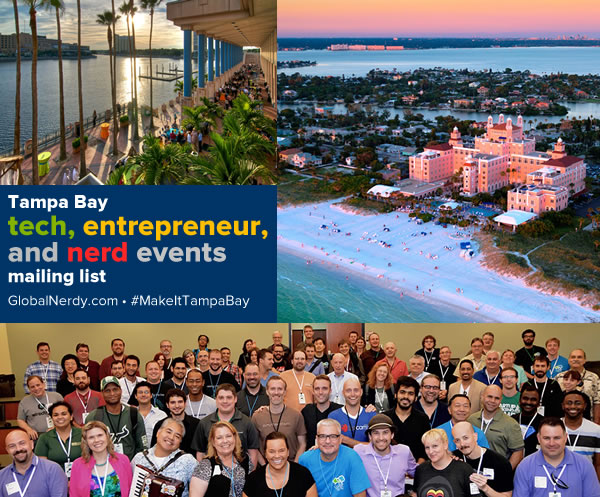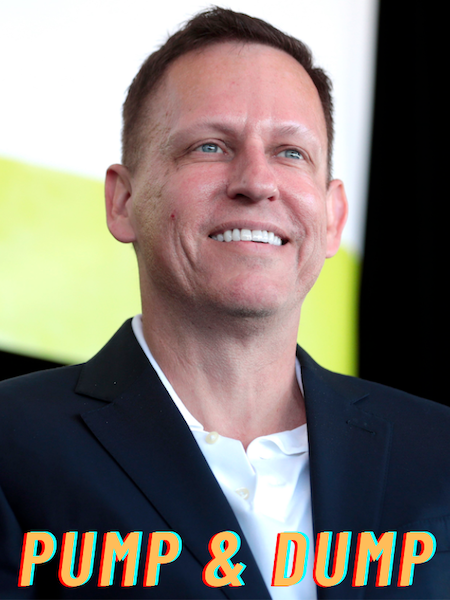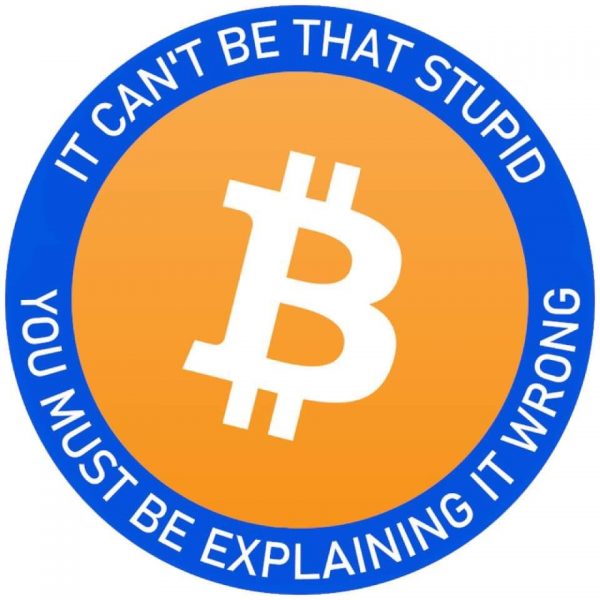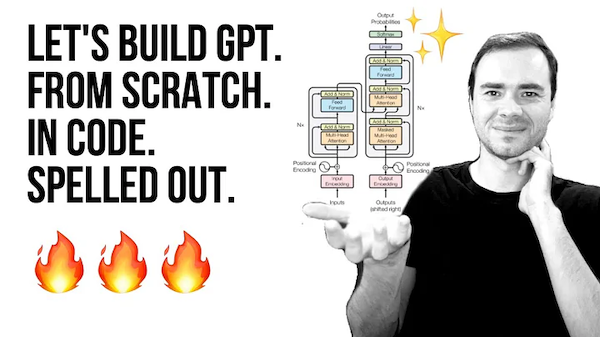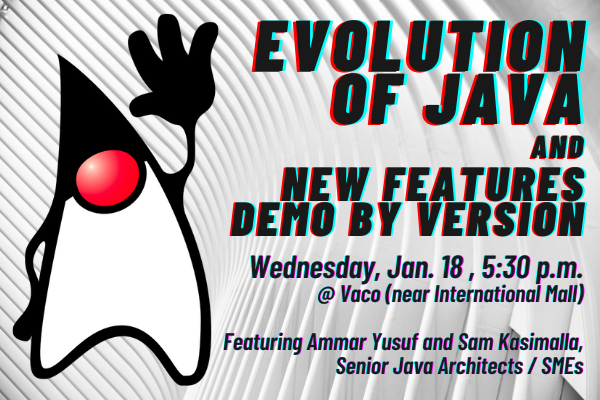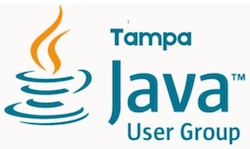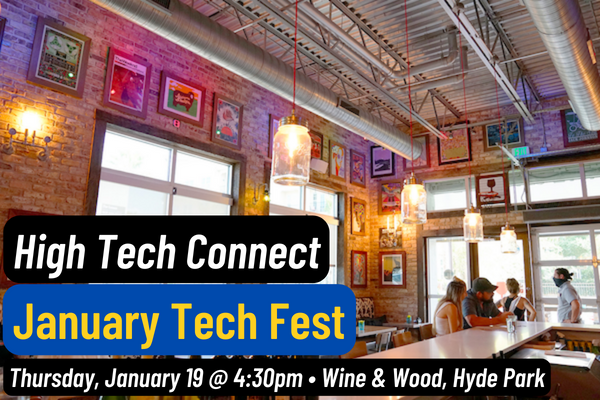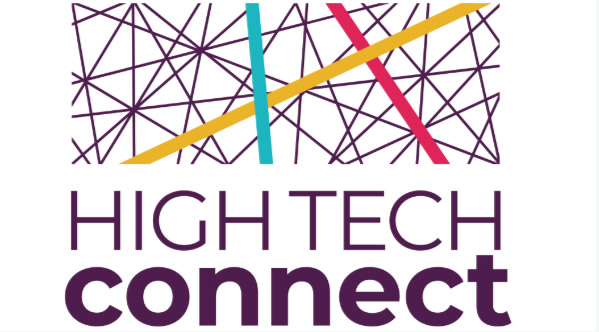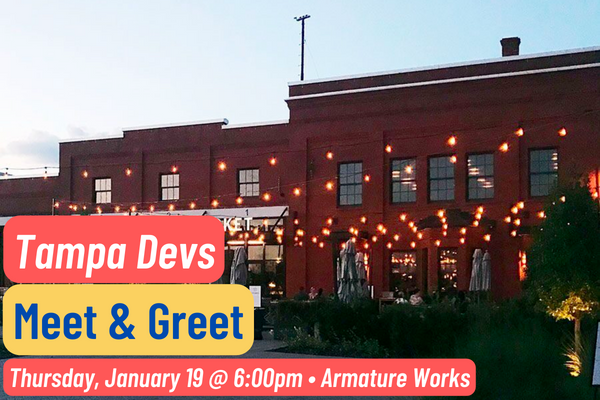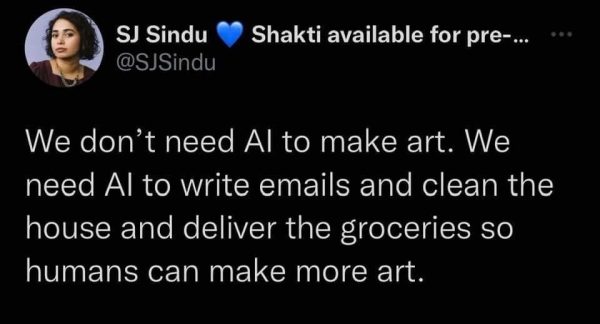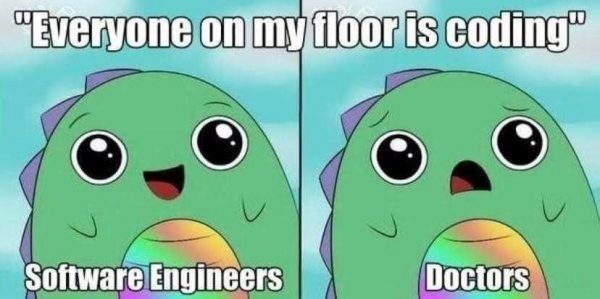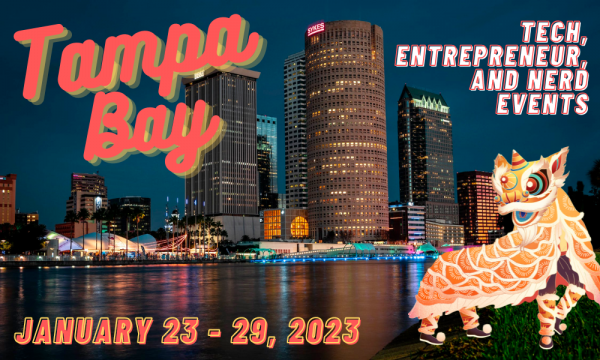
Here’s the list of tech, entrepreneur, and nerd events for Tampa Bay and surrounding areas for the week of Monday, January 16 through the Sunday, January 22, 2023!
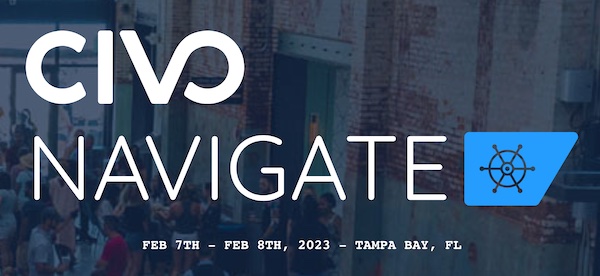
Find out about this conference and how you can attend for 50% off.
This week’s events
Monday, January 23
| Group | Event Name | Time |
|---|---|---|
| Florida Center for Creative Photography • Saint Petersburg, FL | Monday Morning FCCP Photowalk to Eagle Lake Park, Largo, FL | Mon, Jan 23 · 8:30 AM EST |
| Real Life Trading – Tampa FL • Tampa, FL | RLT FREE WEEK – OPEN HOUSE | Mon, Jan 23 · 9:00 AM EST |
| Agilest Downtown Tampa Office • Tampa, FL | SAFe for Architects Scaled Agile Training Certification – Florida Tampa | Mon, Jan 23, 9:00 AM |
| The Coliseum • St. Petersburg, FL | Tampa Bay Job Fair | Mon, Jan 23, 10:00 AM |
| Tampa / St Pete Business Connections • Tampa, FL | Downtown St Pete Business Professionals Lunch | Mon, Jan 23 · 11:00 AM EST |
| Christian Professionals Network Tampa Bay • Largo, FL | Business Networking Meeting | Mon, Jan 23 · 11:30 AM EST |
| Entrepreneurs Empower Empire • Orlando, FL | Entrepreneurs Empower Empire Official Meeting– | Mon, Jan 23 · 11:30 AM EST |
| Entrepreneurs’ Empowerment Empire • Orlando, FL | Official Meeting | Mon, Jan 23 · 11:30 AM EST |
| Tampa Bay Business Networking Meetings & Mixers • Tampa, FL | Monday Business Introductions | Mon, Jan 23 · 11:30 AM EST |
| Young Professionals Networking JOIN in and Connect! • Saint Petersburg, FL | Start the Week with more connections! JOIN us at Cafe Delanie All Welcome | Mon, Jan 23 · 11:30 AM EST |
| Professional Business Networking with RGAnetwork.net • Tampa, FL | St. Pete Networking Lunch! Fords Garage! Monday’s | Mon, Jan 23 · 11:30 AM EST |
| Thinkful Webinar • Tampa, FL | Thinkful Webinar || Intro To Data Analytics: Tableau Basics | Mon, Jan 23, 12:00 PM |
| Tampa Startup Founder 101 • Tampa, FL | Social Media Marketing for Startup Founders with Andrew Miller | Mon, Jan 23 · 1:00 PM EST |
| TampaBay-Job-Links | Gulf Coast JFCS • Tampa, FL | Kick-Off Monday: How Hiring Managers Want You to Follow Up | Mon, Jan 23, 1:00 PM |
| Free Video Production Classes – TV/Internet • Tampa, FL | YouTube Basics (ONLINE CLASS) – FREE for Hillsborough County Residents | Mon, Jan 23 · 4:00 PM EST |
| Girl Develop It Orlando • Orlando, FL | Full-stack React (MERN) Cohort | Mon, Jan 23 · 4:00 PM EST |
| SCIPS, a 50+ Tampa Bay Singles Club • Clearwater, FL | EUCHRE, Rummy Q and other Board Games for ENTHUSIASTIC GAME PLAYERS | Mon, Jan 23 · 4:00 PM EST |
| Orlando Digital Media Design Meetup • Orlando, FL | Online Class – Adobe InDesign 101 | Mon, Jan 23 · 5:30 PM EST |
| Tampa Bay Tabletoppers • Tampa, FL | Monday Feast & Game Night | Mon, Jan 23 · 6:00 PM EST |
| Critical Hit Games • Saint Petersburg, FL | MTG: Commander Night | Mon, Jan 23 · 6:00 PM EST |
| Board Game Meetup: Board Game Boxcar • Orlando, FL | Monday Weekly Board Game Night! (Lazy Moon Colonial Location) | Mon, Jan 23 · 6:00 PM EST |
| Brews N Board Games • Orlando, FL | Board Game Night at Persimmon Hollow Flamingo Crossings | Mon, Jan 23 · 6:00 PM EST |
| Eccentricity Club (Foodies and Fun) • Altamonte Springs, FL | Memorable Meals at Mark’s Jamaican…in Orlando (Dean Rd. & University Blvd.) | Mon, Jan 23 · 6:00 PM EST |
| Thinkful Webinar • Tampa, FL | Thinkful Webinar || Free Crash Course: JavaScript Fundamentals | Mon, Jan 23, 6:00 PM |
| Tampa – Sarasota – Venice Trivia & Quiz Meetup • Bradenton, FL | Trivia Night – Off the Wagon Kitchen & Brewery Smartphone Trivia Game Show | Mon, Jan 23 · 6:30 PM EST |
| Ironhack Tampa – Tech Careers, Learning and Networking • Tampa, FL | Interview Skills for Tech Career Success | Mon, Jan 23 · 7:00 PM EST |
| Learn-To-Trade Forex – Online (As seen on Orlando Sentinel) • Winter Park, FL | Learn-To-Trade Q&A (ONLINE) | Mon, Jan 23 · 7:00 PM EST |
| Learn-To-Trade Crypto – Online (As seen on Orlando Sentinel) • Maitland, FL | Learn-To-Trade Q&A (0NLINE) | Mon, Jan 23 · 7:00 PM EST |
| Tampa Bay Gaming: RPG’s, Board Games & more! • Tampa, FL | Board Game Night at Armada Games | Mon, Jan 23 · 7:00 PM EST |
| Saint Petersburg Ladies book club • Saint Petersburg, FL | St. Pete Women’s Book Club | Mon, Jan 23 · 7:00 PM EST |
| Library Book Clubs – OCLS • Orlando, FL | Virtual Event: Hiawassee Book Club | Mon, Jan 23 · 7:00 PM EST |
| Light Study PRO – A Photography Workshop for Emerging Pros • Miami, FL | Members as far back as 2008 can access their photos | Mon, Jan 23 · 7:00 PM EST |
| Orlando Stoics • Winter Park, FL | ONLINE: “Nietzsche and Nihilism” | Mon, Jan 23 · 7:00 PM EST |
| Meet New People As Adults – Which is Harder Than Expected • Palm Harbor, FL | Trivia Night to Meet New People | Mon, Jan 23 · 7:00 PM EST |
| Black Rock Bar & Grill • Tampa, FL | TAMPA MONDAY NIGHT BUSINESS NETWORKING EVENT AT BLACK ROCK BAR & GRILL | Mon, Jan 23, 7:00 PM |
| Online • Tampa, FL | Escape Corporate: From Employee to Entrepreneur – Tampa | Mon, Jan 23, 7:00 PM |
| Tampa • Tampa, FL | Step by Step Guide For 100 Actions To Take When Starting Your Business | Mon, Jan 23, 7:00 PM |
| Central Florida AD&D (1st ed.) Grognards Guild • Winter Park, FL | World of Greyhawk: 1E One-Shots | Mon, Jan 23 · 7:30 PM EST |
| The Nomadic Entrepreneur Group Sarasota • Sarasota, FL | Learn How to Create a Ridiculously Easy Second Income on LinkedIn | Mon, Jan 23 · 8:00 PM EST |
| Evolve Events with Us – Tampa • Tampa, FL | How to Create an extraordinary easy Passive Monthly Second Income on Linkedin | Mon, Jan 23 · 8:00 PM EST |
| Thinkful Webinar • Tampa, FL | Thinkful Webinar || Enhancing Your Career With Mindfulness | Mon, Jan 23, 9:00 PM |
Tuesday, January 24
| Group | Event Name | Time |
|---|---|---|
| Business Strategy Meetup Group • Palm Harbor, FL | Business Networking | Tue, Jan 24 · 7:15 AM EST |
| Network Professionals Inc. of South Pinellas (NPI) • Saint Petersburg, FL | NPI St. Pete Business Builders Chapter – Exchange Qualified Business Referrals | Tue, Jan 24 · 7:30 AM EST |
| DoubleTree by Hilton Hotel Tampa Airport – Westshore • Tampa, FL | Fearless Presentations ® Public Speaking Class | Tue, Jan 24, 9:00 AM |
| Westchase Golf Club • Tampa, FL | 23 and Me | Tue, Jan 24, 9:30 AM |
| Career Success Academy • Tampa, FL | LinkedIn for Job Seekers | Tue, Jan 24 · 10:00 AM EST |
| Orlando Melrose Makers • Orlando, FL | In-Person: Makerspace Open Lab | Tue, Jan 24 · 10:30 AM EST |
| Orlando Cybersecurity Meetup • Orlando, FL | Identity security can thwart 80% of cyberattacks | Tue, Jan 24 · 11:00 AM EST |
| Tampa / St Pete Business Connections • Tampa, FL | Westchase/Oldsmar Business Networking Lunch ~ All Welcome | Tue, Jan 24 · 11:00 AM EST |
| Professional Business Networking with RGAnetwork.net • Tampa, FL | Oldsmar/Westchase Networking Lunch – Wild Rover Brewing Company | Tue, Jan 24 · 11:00 AM EST |
| Young Professionals Networking JOIN in and Connect! • Saint Petersburg, FL | Westchase/Oldsmar Business Networking Lunch ~ All Welcome | Tue, Jan 24 · 11:00 AM EST |
| Tampa Bay Business Networking Meetings & Mixers • Tampa, FL | Upper Pinellas,Oldsmar,Westchase Networking Lunch -Wild Rover Brewing Company | Tue, Jan 24 · 11:00 AM EST |
| Entrepreneur Collaborative Center • Tampa, FL | Choosing a Retirement Plan For Your Business | Tue, Jan 24, 11:00 AM |
| Pasco County Young Entrepreneurs/Business Owners All Welcome • Wesley Chapel, FL | Professional Business Networking Lunch Glory Day’s New Tampa | Tue, Jan 24 · 11:30 AM EST |
| Suncoast Business Network • Sarasota, FL | Networking and Lunch | Tue, Jan 24 · 11:30 AM EST |
| Wesley Chapel, Trinity, New Tampa, Business Professionals • Wesley Chapel, FL | New Tampa Networking Lunch at Glory Day’s Grill New Tampa | Tue, Jan 24 · 11:30 AM EST |
| Women Who Code Tampa • Tampa, FL | Starting the Conversation: Tech Ethics: WWCode Global Partner Event | Tue, Jan 24 · 12:00 PM EST |
| State of Flow • Sarasota, FL | Estado de Flow – Buenos Aires Argentina | Tue, Jan 24 · 12:00 PM EST |
| Manatee River Business Exchange Club • Ellenton, FL | Great group for referrals – Several new members – WE are growing!!! | Tue, Jan 24 · 12:00 PM EST |
| Thinkful Webinar • Tampa, FL | Thinkful Webinar || UX/UI Design: Designing A UX Case Study | Tue, Jan 24, 12:00 PM |
| WEB3CFL -Art -Music -Gaming -ai -Bitcoin -Crypto -Blockchain • Orlando, FL | Bitcoin/Crypto. Buying, Selling and sharing ideas. Small group atmosphere. | Tue, Jan 24 · 1:00 PM EST |
| Tampa • Tampa, FL | The 3 Doors Job Search – Master the Modern Job Search [Tampa] | Tue, Jan 24, 1:00 PM |
| Tampa • Tampa, FL | Time Management is a Myth! | Tue, Jan 24, 1:00 PM |
| Entrepreneur Collaborative Center • Tampa, FL | Non-Profit Leadership Round Table | Tue, Jan 24, 2:00 PM |
| Tampa • Tampa, FL | Afraid Of Public Speaking? FREE Virtual class to Banish Anxiety and Fears | Tue, Jan 24, 3:00 PM |
| Mindshop Online Classroom • Tampa, FL | AutoReplay™️|Build Scalable Products using Information Architecture | Tue, Jan 24, 3:00 PM |
| Mindshop Online Classroom • Tampa, FL | MINDSHOP™️|Build Scalable Products using Information Architecture | Tue, Jan 24, 3:00 PM |
| Soaring City Community Engagement Meetup • Tampa, FL | January Community Engagement Committee Meetup | Tue, Jan 24 · 3:30 PM EST |
| Free Video Production Classes – TV/Internet • Tampa, FL | Social Video Marketing Tips(ONLINE CLASS)-FREE for Hillsborough County Residents | Tue, Jan 24 · 4:30 PM EST |
| TECHnically Volunteers of Tampa Bay • Tampa, FL | Synapse Volunteer Informational Session | Tue, Jan 24 · 5:00 PM EST |
| Brick House Tavern + Tap • Tampa, FL | Synapse Volunteer Informational Session | Tue, Jan 24, 5:00 PM |
| The Capital Grille • Tampa, FL | Power Dinner/Entrepreneur Workshop Tampa | Tue, Jan 24, 5:00 PM |
| 2101 E Palm Ave • Tampa, FL | Take Action: Government Contracting | Tue, Jan 24, 5:30 PM |
| Tampa Hackerspace • Tampa, FL | Weekly Open Make Night | Tue, Jan 24 · 6:00 PM EST |
| Tampa Bay AWS User Group • Tampa, FL | AWS Social Networking Event to Kick Off 2023! | Tue, Jan 24 · 6:00 PM EST |
| St. Petersburg Business Networking Pick-up Basketball • Saint Petersburg, FL | Weekly pickup networking basketball | Tue, Jan 24 · 6:00 PM EST |
| Critical Hit Games • Saint Petersburg, FL | Marvel Crisis Protocol Night | Tue, Jan 24 · 6:00 PM EST |
| Orlando Adventurer’s Guild • Orlando, FL | DDAL05-xx Storm King’s Thunder Tier 3 (Continued) | Tue, Jan 24 · 6:00 PM EST |
| Women, Words and Wine • Tampa, FL | January Book- West with Giraffes | Tue, Jan 24 · 6:00 PM EST |
| Florida Center for Creative Photography • Saint Petersburg, FL | Meet & Greet at O’Keefe’s Family Restaurant | Tue, Jan 24 · 6:00 PM EST |
| Shut Up & Write!® Orlando • Orlando, FL | Shut Up & Write!® in Altamonte Springs/Lake Mary | Tue, Jan 24 · 6:00 PM EST |
| Thinkful Webinar • Tampa, FL | Thinkful Webinar || Intro To Data Analytics: Excel Basics | Tue, Jan 24, 6:00 PM |
| Tampa • Tampa, FL | Conquer Your Fear of Public Speaking- Tampa- Virtual Free Trial Class | Tue, Jan 24, 6:00 PM |
| Tampa Bay Tech Career Advice Forum • Tampa, FL | Free Intro to Tech Bootcamp | Tue, Jan 24 · 6:30 PM EST |
| Tampa Cybersecurity Training • Tampa, FL | Free Intro to Tech Bootcamp | Tue, Jan 24 · 6:30 PM EST |
| West Pasco Toastmasters Club #2824 • New Port Richey, FL | Weekly Meeting | Tue, Jan 24 · 6:30 PM EST |
| Tampa – Sarasota – Venice Trivia & Quiz Meetup • Bradenton, FL | Trivia Night – Moose Lodge 2117 Smartphone Trivia Game Show | Tue, Jan 24 · 6:30 PM EST |
| Pinellas Writers • Largo, FL | Weekly Group Meetings – All Writers Welcome! | Tue, Jan 24 · 6:30 PM EST |
| The Sarasota Creative Writers Meetup Group • Sarasota, FL | The Sarasota Creative Writers | Tue, Jan 24 · 6:30 PM EST |
| The Orlando Python User Group • Orlando, FL | Pythonic Monthly Meeting | Tue, Jan 24 · 7:00 PM EST |
| Central Florida Computer Society • Orlando, FL | Central Florida Computer Society TechSIG (Please join us!!) | Tue, Jan 24 · 7:00 PM EST |
| Agile Orlando • Orlando, FL | Lean Beer | Tue, Jan 24 · 7:00 PM EST |
| St. Pete Beers ‘n Board Games for Young Adults • Saint Petersburg, FL | St. Pete Beers ‘n Board Games Meetup for Young Adults | Tue, Jan 24 · 7:00 PM EST |
| Tampa Bay Gaming: RPG’s, Board Games & more! • Tampa, FL | D&D Adventurers League at Armada Games | Tue, Jan 24 · 7:00 PM EST |
| Literate Ladies of Orlando…Well Bred…Well Read • Orlando, FL | The Night She Disappeared for January | Tue, Jan 24 · 7:00 PM EST |
| LIVE-LOVE AND ENJOY! • Clearwater, FL | ITS GAME NIGHT !!! | Tue, Jan 24 · 7:00 PM EST |
| Tampa 20’s and 30’s Social Crew • Tampa, FL | Trivia at Sparkman Wharf | Tue, Jan 24 · 7:00 PM EST |
| Recess and Refresh- Playing fun active recess style games • Sarasota, FL | You work, now let’s Play!!! | Tue, Jan 24 · 7:00 PM EST |
| Tampa • Tampa, FL | Step by Step Guide For 100 Actions To Take When Starting Your Business | Tue, Jan 24, 7:00 PM |
| TB Chess – Tampa Bay – St. Petersburg Chess Meetup Group • Saint Petersburg, FL | Let’s play chess at 54th Ave Kava House! | Tue, Jan 24 · 7:30 PM EST |
| Shut Up & Write!® Tampa • Tampa, FL | Online Event: Shut Up & Write on Zoom | Tue, Jan 24 · 7:45 PM EST |
| Online • Tampa, FL | Entrepreneurship for Tech Employees and Engineers – Tampa | Tue, Jan 24, 8:00 PM |
| Thinkful Webinar • Tampa, FL | Thinkful Webinar || Intro to Data Analytics: SQL Fundamentals | Tue, Jan 24, 9:00 PM |
Wedneday, January 25
| Group | Event Name | Time |
|---|---|---|
| Data, Cloud and AI in Tampa • Tampa, FL | Pre-Trained Language Models: Tools/Frameworks to Solve Downstream NLP/NLU Tasks | Wed, Jan 25 · 8:00 AM EST |
| 1 Million Cups – Orlando • Orlando, FL | 1 Million Cups – Orlando Weekly Meetup | Wed, Jan 25 · 8:30 AM EST |
| CAMLS – Center For Advanced Medical Learning And Simulation • Tampa, FL | Conversation with a CEO: Helen Wesley | Wed, Jan 25, 8:30 AM |
| Suncoast Drone Club • Tampa, FL | Alligator Park | Wed, Jan 25 · 9:00 AM EST |
| Rexel • Tampa, FL | Rexel Tech Tour 2023 – Tampa | Wed, Jan 25, 9:00 AM |
| Entrepreneur Collaborative Center • Tampa, FL | 1 Million Cups Tampa 2023! | Wed, Jan 25, 9:00 AM |
| GDG SunCoast • Tampa, FL | Flutter Forward 2023 – Online | Wed, Jan 25 · 9:30 AM EST |
| The Tampa Club • Tampa, FL | Modern Marketing Tampa Bay, FL | Wed, Jan 25, 10:00 AM |
| Florida Agile – Helping You Achieve Business Agility! • Orlando, FL | SAFe Scrum Master 5.1 Certification Course – Online via ZOOM | Wed, Jan 25 · 10:30 AM EST |
| Young Professionals Networking JOIN in and Connect! • Saint Petersburg, FL | Brandon Business Professionals Just Love Coffee | Wed, Jan 25 · 11:30 AM EST |
| Tampa / St Pete Business Connections • Tampa, FL | Brandon Business Professionals IN Person!!!! | Wed, Jan 25 · 11:30 AM EST |
| Entrepreneurs & Business Owners of Sarasota & Bradenton • Sarasota, FL | Sarasota Business Networking Lunch All Welcome, Just purchase Lunch! | Wed, Jan 25 · 11:30 AM EST |
| Bradenton/Sarasota Networking Meetings and Mixers • Sarasota, FL | Business Networking Lunch | Wed, Jan 25 · 11:30 AM EST |
| Glory Days Grill • Tampa, FL | 11:30AM Wednesday Carrollwood Professional Networking at Glory Days Grill! | Wed, Jan 25, 11:30 AM |
| Just Love Coffee Cafe – Brandon FL • Brandon, FL | Brandon Young Professionals Networking Lunch at Just Love Coffee Wednesdays | Wed, Jan 25, 11:30 AM |
| Web Design And SEO/SEM Three Sixty Degrees • Apollo Beach, FL | Web Design And SEO/SEM Three Sixty Degrees | Wed, Jan 25 · 12:00 PM EST |
| Sarasota Web Development Meetup Group • Sarasota, FL | Lunch Hour Meetup | Wed, Jan 25 · 12:00 PM EST |
| Thinkful Webinar • Tampa, FL | Thinkful Webinar || What Tech Career Is Right For Me? | Wed, Jan 25, 12:00 PM |
| Heart of Agile St. Pete – Tampa – Orlando • Saint Petersburg, FL | Heart of Agile MONTHLY Coffee Corner | Wed, Jan 25 · 12:30 PM EST |
| Heart of Agile St. Pete – Tampa – Orlando • Saint Petersburg, FL | Heart of Agile 4th Wed of the month – MONTHLY Coffee Corner | Wed, Jan 25 · 12:30 PM EST |
| Hyperledger Tampa • Tampa, FL | Hyperledger In-depth with BTP: Provenance Built on Open Source | Wed, Jan 25 · 1:00 PM EST |
| Tampa Startup Founder 101 • Tampa, FL | Get Friendly Feedback on Your Idea from Experts (Online Roundtable Event) | Wed, Jan 25 · 1:00 PM EST |
| Work From Home -Online Business Opportunities and Networking • Tampa, FL | Learn To Create A Successful Branded Print on Demand Business | Wed, Jan 25 · 3:00 PM EST |
| The Tampa Chapter of the Society for the Exploration of Play • Tampa, FL | Playing Games in the Alley | Wed, Jan 25 · 5:00 PM EST |
| Brandon Boardgamers • Brandon, FL | Board Gaming – In Person | Wed, Jan 25 · 5:00 PM EST |
| Tampa Gaming Guild • Tampa, FL | Wednesday Board Game Night | Wed, Jan 25 · 5:30 PM EST |
| The Attic On Kennedy • Tampa, FL | Tampa Speed Networking | Wed, Jan 25, 5:30 PM |
| Critical Hit Games • Saint Petersburg, FL | Board Game Night | Wed, Jan 25 · 6:00 PM EST |
| Tampa Bay Gaming: RPG’s, Board Games & more! • Tampa, FL | Hobby Night – Minis Painting Tips & Tricks at Armada Games | Wed, Jan 25 · 6:00 PM EST |
| Board Game Meetup: Board Game Boxcar • Orlando, FL | Blood on the Clocktower & Board Games! (Deadwords Brewing Location) | Wed, Jan 25 · 6:00 PM EST |
| Orlando Adventurer’s Guild • Orlando, FL | [HISTORIC] Durlag’s Tower Tier 3 – DM Robert | Wed, Jan 25 · 6:00 PM EST |
| Around The World: International Book Club – Metrowest • Orlando, FL | NIGERIA: Stay With Me – Ayọ̀bámi Adébáyọ̀ | Wed, Jan 25 · 6:00 PM EST |
| Suncoast Critical Thinking Discussion Group • Sarasota, FL | CRITICAL THINKERS SUPPER AT AMOB LANDSIDE IN PRIVATE ROOM | Wed, Jan 25 · 6:00 PM EST |
| Thinkful Webinar • Tampa, FL | Thinkful Webinar || Intro to HTML & CSS: Build Your Own Website | Wed, Jan 25, 6:00 PM |
| Zydeco Brew Werks • Tampa, FL | Network Under 40 Tampa: Zydeco Brew Werks (Ybor City) | Wed, Jan 25, 6:00 PM |
| Blind Tiger Cafe • Tampa, FL | SEO Workshop & Wine Tasting in Tampa Bay | Wed, Jan 25, 6:00 PM |
| Tampa • Tampa, FL | Entrepreneurship Business Opportunity To Earn Extra Income TAMPA | Wed, Jan 25, 6:00 PM |
| Tampa Hackerspace • Tampa, FL | Woodshop Tool Sign Off-Jointer, Planer, & Bandsaw (Members Only) | Wed, Jan 25 · 6:30 PM EST |
| Orlando ServiceNow Developer Meetup • Orlando, FL | Social Informal Developer Gathering! | Wed, Jan 25 · 6:30 PM EST |
| Warehouse Arts District Association (WADA) • Saint Petersburg, FL | “The Wiz” & Storytelling Your Art: A Gallery Talk & Movie Screening | Wed, Jan 25 · 6:30 PM EST |
| Bradenton Photo Group • Bradenton, FL | Beyond Camera Basics | Wed, Jan 25 · 6:30 PM EST |
| Shut Up & Write!® Tampa • Tampa, FL | Shut Up & Write!® [Tampa] – IN PERSON | Wed, Jan 25 · 6:30 PM EST |
| Tampa Writers Alliance • Tampa, FL | Tampa Writers Alliance Critique Group | Wed, Jan 25 · 6:30 PM EST |
| CREDO Conduit • Orlando, FL | Tech Town Hall 2023 | Wed, Jan 25, 6:30 PM |
| Tampa Bay Bitcoin • Tampa, FL | [Virtual] Tampa Bay Bitcoin Meetup: News, Markets, & Community | Wed, Jan 25 · 7:00 PM EST |
| MakerFX Makerspace • Orlando, FL | MakerFX Monthly Membership Meeting | Wed, Jan 25 · 7:00 PM EST |
| Central Florida CitySec • Orlando, FL | CitrusSec Meetup | Wed, Jan 25 · 7:00 PM EST |
| Castaways Euchre Club • Saint Petersburg, FL | Castaways Euchre Club | Wed, Jan 25 · 7:00 PM EST |
| Tampa – Sarasota – Venice Trivia & Quiz Meetup • Bradenton, FL | Smartphone Trivia Game Show at Wilders Pizza | Wed, Jan 25 · 7:00 PM EST |
| Adventures On Tap DnD and Board Games • Orlando, FL | Nerd Night: Board Games and Beer at Deadwords Brewing | Wed, Jan 25 · 7:00 PM EST |
| Our Photo Tribe Workshops • Tampa, FL | Digital Camera Basics – Online | Wed, Jan 25 · 7:00 PM EST |
| Central Florida AD&D (1st ed.) Grognards Guild • Winter Park, FL | New Beginnings & Old Rivalries | Wed, Jan 25 · 7:00 PM EST |
| Writers of Central Florida or Thereabouts • Maitland, FL | Orlando Word Lab | Wed, Jan 25 · 7:00 PM EST |
| Ten10 Brewing Company • Orlando, FL | CitrusSec Orlando CitySec – January Meetup | Wed, Jan 25, 7:00 PM |
| Beef ‘O’ Brady’s • Tampa, FL | HUMP DAY HOSPITALITY SOCIAL & BUSINESS NETWORKING EVENT AT BEEF O BRADYS | Wed, Jan 25, 7:00 PM |
| Orlando Digital Media Design Meetup • Orlando, FL | Online Class – Adobe Illustrator Level 4 | Wed, Jan 25 · 7:30 PM EST |
| Orlando Lady Developers Meetup • Orlando, FL | Code challenge Monthly coding session | Wed, Jan 25 · 8:00 PM EST |
| Tampa • Tampa, FL | Beating Burnout: A Master Class for High Performing Women – VIRTUAL – Tampa | Wed, Jan 25, 8:00 PM |
| Thinkful Webinar • Tampa, FL | Thinkful Webinar || What is UX/UI Design? | Wed, Jan 25, 9:00 PM |
| Shut Up and Write Sarasota • Sarasota, FL | Shut Up & Write!® at the Gulf Gate Library in Sarasota | Wed, Jan 25 · 11:30 PM EST |
Thursday, January 26
| Group | Event Name | Time |
|---|---|---|
| Pasco County Young Entrepreneurs/Business Owners All Welcome • Wesley Chapel, FL | Happy Hangar Early Bird Professionals Networking | Thu, Jan 26 · 7:30 AM EST |
| Pasco County Young Entrepreneurs/Business Owners All Welcome • Wesley Chapel, FL | Happy Hangar Early Bird Professionals Networking | Thu, Jan 26 · 7:30 AM EST |
| Agile Mindset Book Club (Tampa, FL) • Tampa, FL | Book: Crucial Conversations – (Thursday Morning Series. Two chapters each week!) | Thu, Jan 26 · 8:00 AM EST |
| InFLOWential Leader & Entrepreneur Community • Tampa, FL | InFLOWential FREEDOM Summit | Thu, Jan 26 · 9:00 AM EST |
| Agilest Downtown Tampa Office • Tampa, FL | SAFe Lean Portfolio Management Training LPM Certification – Florida Tampa | Thu, Jan 26, 9:00 AM |
| Orlando Melrose Makers • Orlando, FL | In-Person: Makerspace Open Lab | Thu, Jan 26 · 10:30 AM EST |
| Hyperledger Tampa • Tampa, FL | Accelerate the Path to Production with Fabric Topologies | Thu, Jan 26 · 11:00 AM EST |
| Florida Startup: Idea to IPO • Tampa, FL | How to Cut Product Development Costs by up to 50%! | Thu, Jan 26 · 11:00 AM EST |
| Young Professionals Networking JOIN in and Connect! • Saint Petersburg, FL | The Founders Meeting where it all Began! JOIN us! Bring a guest and get a gift | Thu, Jan 26 · 11:00 AM EST |
| ManageEngine’s Cybersecurity Meetups • Orlando, FL | Detecting and preventing Malicious script executions | Thu, Jan 26 · 11:00 AM EST |
| WEB3CFL -Art -Music -Gaming -ai -Bitcoin -Crypto -Blockchain • Orlando, FL | Crypto Set-up Class -Limited to 5 Seats Only | Thu, Jan 26 · 11:00 AM EST |
| Tampa / St Pete Business Connections • Tampa, FL | Clearwater/Central Pinellas Networking Lunch | Thu, Jan 26 · 11:00 AM EST |
| Business Professionals of Pinellas, Pasco & Hillsborough • Largo, FL | Clearwater Professional Networking Lunch | Thu, Jan 26 · 11:00 AM EST |
| Tampa Bay Business Networking Happy Hour/Meetings/Meet Up • Clearwater, FL | Pinellas County’s Largest Networking Lunch and your invited! | Thu, Jan 26 · 11:00 AM EST |
| Holiday Inn Tampa Westshore – Airport Area • Tampa, FL | Tampa Job Fair January 26, 2023 – Tampa Career Fair | Thu, Jan 26, 11:00 AM |
| Tampa • Tampa, FL | Tampa Job Fair – Tampa Career Fair | Thu, Jan 26, 11:00 AM |
| Wild Rover Brewing Company • Tampa, FL | Westchase Professional Business Lunch all Welcome!!! JOIN us 11AM | Thu, Jan 26, 11:00 AM |
| Pasco County Young Entrepreneurs/Business Owners All Welcome • Wesley Chapel, FL | Wesley Chapel Professional Networking Lunch at Chuck Lager America’s Tavern | Thu, Jan 26 · 11:30 AM EST |
| Professional Business Networking with RGAnetwork.net • Tampa, FL | Breakroom Bar & Grill 11:28 Doors open at 11:00am IN Person | Thu, Jan 26 · 11:30 AM EST |
| Wesley Chapel, Trinity, New Tampa, Business Professionals • Wesley Chapel, FL | Wesley Chapel Professional Networking Lunch | Thu, Jan 26 · 11:30 AM EST |
| Network Professionals Inc. of South Pinellas (NPI) • Saint Petersburg, FL | NPI Power Lunch – Exchange Qualified Business Referrals | Thu, Jan 26 · 11:30 AM EST |
| University Mall • Tampa, FL | Networking Entre Hispanos | Thu, Jan 26, 11:30 AM |
| Tampa Bay Tech Career Advice Forum • Tampa, FL | Career Accelerator Workshop – LinkedIn Strategies | Thu, Jan 26 · 12:00 PM EST |
| Thinkful Webinar • Tampa, FL | Thinkful Webinar || Bootcamp Alumni Success Secrets | Thu, Jan 26, 12:00 PM |
| Thinkful Webinar • Orlando, FL | Thinkful Webinar || Bootcamp Alumni Success Secrets | Thu, Jan 26, 12:00 PM |
| Tampa Bay Gaming: RPG’s, Board Games & more! • Tampa, FL | Commander Open Play Night at Armada Games | Thu, Jan 26 · 1:00 PM EST |
| StartUp Xchange • Saint Petersburg, FL | Startup Strategy Office Hours | Thu, Jan 26 · 2:00 PM EST |
| Data, Cloud and AI in Tampa • Tampa, FL | Pre-Trained Language Models: Tools/Frameworks to Solve Downstream NLP/NLU Tasks | Thu, Jan 26 · 3:30 PM EST |
| Tampa – Sarasota – Venice Trivia & Quiz Meetup • Bradenton, FL | Trivia Night – Bunkers Bar of Sun City Center Smartphone Trivia Game Show | Thu, Jan 26 · 4:00 PM EST |
| Florida Center for Creative Photography • Saint Petersburg, FL | FCCP Weekly Photo Assignment 107: Horses | Thu, Jan 26 · 5:00 PM EST |
| Salt Shack On The Bay • Tampa, FL | Combined Military/Vet Networking Event- M4L – WVRF – W&W | Thu, Jan 26, 5:00 PM |
| Duke Energy Center for the Arts – Mahaffey Theater • St. Petersburg, FL | Multi Chamber Super Mingle Networking Mixer | Thu, Jan 26, 5:00 PM |
| Tampa Bay Data Engineering Group • Tampa, FL | TBDEG – Monthly Data Chat | Thu, Jan 26 · 6:00 PM EST |
| MultifamilyMasters com – Clearwater, FL • Clearwater, FL | Happy Hour –> Lets Network !! | Thu, Jan 26 · 6:00 PM EST |
| The Pinellas County Young “Professionals” • Saint Petersburg, FL | 2023 Happy Hour – MUST Wine Loft | Thu, Jan 26 · 6:00 PM EST |
| Brandon and Seffner area AD&D and Rifts (Palladium) Group • Seffner, FL | 2nd ed. AD&D Campaign. | Thu, Jan 26 · 6:00 PM EST |
| Indian Rocks Beach D&D 5e Meetup Group • Indian Rocks Beach, FL | Curse of Strahd Session 4 | Thu, Jan 26 · 6:00 PM EST |
| Sarasota Strategy Board Game League • Sarasota, FL | Terraforming Mars – Thursday January 26! | Thu, Jan 26 · 6:00 PM EST |
| Critical Hit Games • Saint Petersburg, FL | Warhammer Night | Thu, Jan 26 · 6:00 PM EST |
| Orlando Board Gaming Weekly Meetup • Orlando, FL | Central Florida Board Gaming at The Collective | Thu, Jan 26 · 6:00 PM EST |
| Clearwater Christian Boardgame Night • Saint Petersburg, FL | Christian Board Game Night | Thu, Jan 26 · 6:00 PM EST |
| La La’s Sangria Bar • Tampa, FL | Blacks In Technology Tampa- Open House | Thu, Jan 26, 6:00 PM |
| Thinkful Webinar • Tampa, FL | Thinkful Webinar || UX/UI Design: Wireframes and Prototypes | Thu, Jan 26, 6:00 PM |
| Birchwood Canopy • St. Petersburg, FL | Start of the New Year Party | Thu, Jan 26, 6:00 PM |
| Young Entrepreneurs of America YEA Meetup Group • Tampa, FL | YEA: Young Entrepreneur Networking & Mixer | Thu, Jan 26 · 6:30 PM EST |
| Wesley Chapel Social Meetup meet and greet • Wesley Chapel, FL | Trivia night | Thu, Jan 26 · 6:30 PM EST |
| Tampa Writers Alliance • Tampa, FL | Tampa Writers Alliance Poetry Group | Thu, Jan 26 · 6:30 PM EST |
| Maloney’s Local Irish Pub Carrollwood • Tampa, FL | Young Entrepreneur Networking Meet & Greet | Thu, Jan 26, 6:30 PM |
| Tampa Hackerspace • Tampa, FL | Girls Who Code for Grades 6-12 | Thu, Jan 26 · 7:00 PM EST |
| Communication Skills for Interviews and Life • Tampa, FL | How to Increase Your Confidence and Communication | Thu, Jan 26 · 7:00 PM EST |
| Tampa Bay Technology Center • Clearwater, FL | WordPress | Thu, Jan 26 · 7:00 PM EST |
| Tampa Hackerspace • Tampa, FL | 3D Printing Guild | Thu, Jan 26 · 7:00 PM EST |
| Tampa Bay Bitcoin • Tampa, FL | Bitcoin Workshop | Thu, Jan 26 · 7:00 PM EST |
| WordPress Clearwater FL • Clearwater, FL | WordPress Monthly Meetup | Thu, Jan 26 · 7:00 PM EST |
| Ladies Connect! • Tampa, FL | Clasico Italian Chophouse | Thu, Jan 26 · 7:00 PM EST |
| Live streaming production and talent • Tarpon Springs, FL | Live streaming production and talent | Thu, Jan 26 · 7:00 PM EST |
| Low Light Photography Group • Bradenton, FL | Low Light Photo Group | Thu, Jan 26 · 7:00 PM EST |
| Our Relationships Matter Community/Book Club • Ocoee, FL | Our Relationships Matter Book Club | Thu, Jan 26 · 7:00 PM EST |
| Book Club Babes • Orlando, FL | Book Club Babes January Meet Up! | Thu, Jan 26 · 7:00 PM EST |
| Indica Cafe Events • Tampa, FL | Dungeons and Dragons Thursday Nights at 7 | Thu, Jan 26 · 7:00 PM EST |
| ONLINE • TAMPA, FL | STARTUPS | Understand Lean Startup vs. Design Thinking vs. Agile | Thu, Jan 26, 7:00 PM |
| Tampa • Tampa, FL | Step by Step Guide For 100 Actions To Take When Starting Your Business | Thu, Jan 26, 7:00 PM |
| Online • Tampa, FL | Entrepreneurship for Tech Employees and Engineers – Tampa | Thu, Jan 26, 8:00 PM |
| Thinkful Webinar • Tampa, FL | Thinkful Webinar || Data Analytics: Tools of the Trade | Thu, Jan 26, 9:00 PM |
Friday, January 27
| Group | Event Name | Time |
|---|---|---|
| Tampa Artificial Intelligence Meetup • Tampa, FL | Tampa Cybersecurity Summit | Fri, Jan 27 · 7:30 AM EST |
| GDG SunCoast • Tampa, FL | Learn to Protect Your Business from Cyber Attacks | Fri, Jan 27 · 7:30 AM EST |
| Tampa Bay Agile • Tampa, FL | Lean Coffee for All Things Agile (Westshore) | Fri, Jan 27 · 7:30 AM EST |
| Agile Orlando • Orlando, FL | (Hybrid) Agile in the Morning | Fri, Jan 27 · 7:30 AM EST |
| Entrepreneurs & Business Owners of Sarasota & Bradenton • Sarasota, FL | A.C.T. Acquire Connections Today Morning Business Networking All Welcome! | Fri, Jan 27 · 7:45 AM EST |
| Tampa Bay DevOps Meetup • Tampa, FL | US Secret Service Discusses Latest Cyber Threats at Jan 27 Official Cyber Summit | Fri, Jan 27 · 8:00 AM EST |
| Armature Works • Tampa, FL | HR, People & Culture Meetup | Fri, Jan 27, 8:00 AM |
| Homebrew Hillsborough • Tampa, FL | January 2023 Homebrew Hillsborough: Soaring City | Fri, Jan 27 · 8:30 AM EST |
| Brandon Biz Pros • Brandon, FL | Build your Business with Brandon Biz Pros | Fri, Jan 27 · 8:30 AM EST |
| Young Professionals Networking JOIN in and Connect! • Saint Petersburg, FL | Tampa Young Professionals Virtual Networking Friday Morning All WElCOME | Fri, Jan 27 · 8:45 AM EST |
| Professional Business Networking with RGAnetwork.net • Tampa, FL | A.C.T. Acquire Connections Today Morning Business Networking All Welcome! | Fri, Jan 27 · 8:45 AM EST |
| Entrepreneurs & Business Owners of Sarasota & Bradenton • Sarasota, FL | A.C.T. Acquire Connections Today Morning Business Networking All Welcome! | Fri, Jan 27 · 8:45 AM EST |
| NTi Port Richey, FL • Port Richey, FL | NTi New Port Richey – Business Referral Network | Fri, Jan 27 · 9:00 AM EST |
| Project Codex • Orlando, FL | Virtual Coffee | Fri, Jan 27 · 9:00 AM EST |
| The venue will be announced soon. • Tampa, FL | Public Speaking 1 Day Training in Tampa, FL | Fri, Jan 27, 9:00 AM |
| Tampa • Tampa, FL | Conflict Management Certification Training Classroom in Tampa, FL | Fri, Jan 27, 9:00 AM |
| Christian Professionals Network Tampa Bay • Largo, FL | Improve Speaking Skills & Build Confidence | Fri, Jan 27 · 9:25 AM EST |
| Tampa • Tampa, FL | Tampa Leaders: How To Get Best Employees To Stay As Long As Possible? | Fri, Jan 27, 10:00 AM |
| Tampa Bay Business Networking Meetings & Mixers • Tampa, FL | International Networking at McAlisters Deli every Friday | Fri, Jan 27 · 11:30 AM EST |
| Tampa / St Pete Business Connections • Tampa, FL | International Professionals Networking Meeting | Fri, Jan 27 · 11:30 AM EST |
| Tampa / St Pete Business Connections • Tampa, FL | International Professionals Networking Meeting | Fri, Jan 27 · 11:30 AM EST |
| Tampa Bay Business Networking Happy Hour/Meetings/Meet Up • Clearwater, FL | International Networking Westshore McAlisters Deli | Fri, Jan 27 · 11:30 AM EST |
| Professional Business Networking with RGAnetwork.net • Tampa, FL | Friday International Business Introductions at McAllisters Westshore | Fri, Jan 27 · 11:30 AM EST |
| Powerful Women Networking • Orlando, FL | S Orlando/Dr Phillips: Join us for fun connection growth & networking too! | Fri, Jan 27 · 11:30 AM EST |
| McAlister’s Deli • Tampa, FL | 11:30 AM Friday Networking South Tampa @ McAlisters Deli International Mall | Fri, Jan 27, 11:30 AM |
| Thinkful Webinar • Tampa, FL | Thinkful Webinar || UX/UI Design: Creating A Design System | Fri, Jan 27, 12:00 PM |
| Orlando Power BI User Group • Oviedo, FL | Report Design for the Novice Power BI Report Consumer | Belinda Allen | Fri, Jan 27 · 1:00 PM EST |
| ONLINE • TAMPA, FL | Startups: Understand Lean Startup vs. Design Thinking vs. Agile | Fri, Jan 27, 2:00 PM |
| Clermont Nerd Games • Clermont, FL | Board Game Night! | Fri, Jan 27 · 5:00 PM EST |
| Tampa Gaming Guild • Tampa, FL | Friday Board Game Night | Fri, Jan 27 · 5:30 PM EST |
| Meeple Movers Gaming Group • Ocala, FL | Let’s Play Games ONLINE on Fridays! | Fri, Jan 27 · 5:30 PM EST |
| Florida Python Ninjas • Clermont, FL | Python Meet and Greet | Fri, Jan 27 · 6:00 PM EST |
| Smart Business Network • Orlando, FL | Smart people Network | Fri, Jan 27 · 6:00 PM EST |
| Nerdbrew Events • Tampa, FL | Taps & Drafts | Fri, Jan 27 · 6:00 PM EST |
| Tampa Bay Gaming: RPG’s, Board Games & more! • Tampa, FL | Board Game night at The Strange Realms in Carrollwood Friday, 6 PM | Fri, Jan 27 · 6:00 PM EST |
| Dunnellon Area Board Gamers • Dunnellon, FL | Friday Night Board Gaming | Fri, Jan 27 · 6:00 PM EST |
| Self-Perfected Orlando • Orlando, FL | GROWTH MINDSET | Fri, Jan 27 · 6:00 PM EST |
| Thinkful Webinar • Tampa, FL | Thinkful Webinar || Intro to JavaScript: Build a Virtual Pet | Fri, Jan 27, 6:00 PM |
| MakerFX Makerspace • Orlando, FL | MakerFX Makerspace 3D Printing Guild | Fri, Jan 27 · 7:00 PM EST |
| Critical Hit Games • Saint Petersburg, FL | MTG: Phyrexia All Will Be One Prerelease Event | Fri, Jan 27 · 7:00 PM EST |
| Orlando Adventurer’s Guild • Orlando, FL | Canon’s Custom Campaign Moonsea Tour – DM Canon (Tier 3) | Fri, Jan 27 · 7:00 PM EST |
| Book Haven • Winter Haven, FL | The Midnight Library – Book Chat | Fri, Jan 27 · 7:00 PM EST |
| Online • Tampa, FL | How to Start a Financial Literacy Business – Tampa | Fri, Jan 27, 7:00 PM |
| New Orleans | Twitter Space • Tampa, FL | What is a NFT | What is Cryptovia Biz and Night Lounge (Coming Soon) | Fri, Jan 27, 7:00 PM |
| Tampa • Tampa, FL | Step by Step Guide For 100 Actions To Take When Starting Your Business | Fri, Jan 27, 7:00 PM |
| Phone Consultation • Tampa, FL | Entrepreneurship Coaching Session – Tampa | Fri, Jan 27, 7:00 PM |
| Indica Cafe Events • Tampa, FL | Friday night game night | Fri, Jan 27 · 9:00 PM EST |
| Thinkful Webinar • Tampa, FL | Thinkful Webinar || Learn Data Analytics With Thinkful | Fri, Jan 27, 9:00 PM |
| Tampa Bay Business Networking Meetings & Mixers • Tampa, FL | International Networking at McAlisters Deli every Friday | Fri, Jan 27 · 11:30 PM EST |
Saturday, January 28
| Group | Event Name | Time |
|---|---|---|
| Critical Hit Games • Saint Petersburg, FL | MTG: Phyrexia All Will Be One Midnight Prerelease Event | Sat, Jan 28 · 12:00 AM EST |
| Central Florida Philosophy Meetup • Winter Park, FL | Wake Up and Think Clearly Saturday morning share and discuss. | Sat, Jan 28 · 7:00 AM EST |
| Toastmasters Division G • Ocala, FL | Early Bird Ocala | Sat, Jan 28 · 8:00 AM EST |
| Tampa Hackerspace • Tampa, FL | Steel TIG Welding Safety and Basic Usage (Members Only) | Sat, Jan 28 · 9:00 AM EST |
| Suncoast Drone Club • Tampa, FL | Dunedin Causeway | Sat, Jan 28 · 9:00 AM EST |
| Florida Center for Creative Photography • Saint Petersburg, FL | FREE – Learn Your Camera Series, part 3 — ISO & Exposure | Sat, Jan 28 · 9:00 AM EST |
| Florida Agile – Helping You Achieve Business Agility! • Orlando, FL | SAFe Scrum Master 5.1 Certification Course – Online via ZOOM | Sat, Jan 28 · 9:30 AM EST |
| Chess Republic • Tampa, FL | Saturday Chess at Wholefoods in Midtown, Tampa | Sat, Jan 28 · 9:30 AM EST |
| Writers Group at the Haunted Antique Shop • Deland, FL | Writers Group at the Haunted Antique Shop | Sat, Jan 28 · 9:30 AM EST |
| Tampa Hackerspace • Tampa, FL | Wood Shop Lathe 101 (Members Only) | Sat, Jan 28 · 10:00 AM EST |
| Orlando Lady Developers Meetup • Orlando, FL | Code with me – learning sessions weekly on Saturdays | Sat, Jan 28 · 10:00 AM EST |
| Gen Geek • Saint Petersburg, FL | 3 sisters kayak and manatee swim | Sat, Jan 28 · 10:00 AM EST |
| 16132 Churchview Dr suite 105 • Lithia, FL | New Code Wiz Learning Center Celebrates Grand Opening in Fish Hawk | Sat, Jan 28, 10:00 AM |
| Tampa • Tampa, FL | Conquer Your Fear of Public Speaking- Tampa- Virtual Free Trial Class | Sat, Jan 28, 10:00 AM |
| ONLINE EVENT – Attend Anywhere with Fast Wifi and Sound, Tampa • Tampa, FL | Bestseller Book Bootcamp -Write, Market & Publish Your Book — Tampa | Sat, Jan 28, 10:00 AM |
| ONLINE EVENT – Attend Anywhere with Fast Wifi and Sound, Tampa • Tampa, FL | The Job Hunting Accelerator Bootcamp -Land Your Dream Job — Tampa | Sat, Jan 28, 10:00 AM |
| Orlando Melrose Makers • Orlando, FL | In-Person: Makerspace Open Lab | Sat, Jan 28 · 10:30 AM EST |
| Oviedo Middle Aged Gamers (OMAG) • Oviedo, FL | Bravo Group Campaign Continues | Sat, Jan 28 · 11:00 AM EST |
| Women’s Prosperity Network | Fort Lauderdale Chapter • Fort Lauderdale, FL | Online | VIRTUAL Mastermind Experience: Connecting, Creating & Collaborating | Sat, Jan 28 · 12:00 PM EST |
| Tampa Bay Coalition of Reason • Tampa, FL | January- N. Pinellas Book Club | Sat, Jan 28 · 12:00 PM EST |
| Thinkful Webinar • Tampa, FL | Thinkful Webinar || Data Science vs. Data Analytics | Sat, Jan 28, 12:00 PM |
| Tampa • Tampa, FL | Entrepreneurship Business Opportunity To Earn Extra Income TAMPA | Sat, Jan 28, 12:00 PM |
| Suncoast Makers • Sarasota, FL | FREE Fab Lab Orientation | Sat, Jan 28 · 1:00 PM EST |
| Drunk’n Meeples West Pasco (Boardgames) • Port Richey, FL | Megagame Potluck Picnic (Blood Feud: A Vampires Masquerade) | Sat, Jan 28 · 1:00 PM EST |
| The Maker Team – Plant City • Plant City, FL | Introduction to CNC machines | Sat, Jan 28 · 1:00 PM EST |
| Central Florida Florida Foam Fighting (Fumetsu) • Altamonte Springs, FL | Fighter Practice! (Newbies welcome) | Sat, Jan 28 · 2:00 PM EST |
| Orlando Unity Developers Group • Orlando, FL | Blender: Animating a Walk Cycle – 3D Animation Saturdays in January | Sat, Jan 28 · 2:30 PM EST |
| Bradenton Photo Group • Bradenton, FL | Light Basics – Working with Flash | Sat, Jan 28 · 2:30 PM EST |
| Geekocracy! • Tampa, FL | Painting with a Twist (Tampa) | Sat, Jan 28 · 3:00 PM EST |
| Socrates Cafe – “The unexamined life is not worth living” • Tampa, FL | ONLINE: “Schopenhauer’s Influences: Hinduism & Buddhism” | Sat, Jan 28 · 3:00 PM EST |
| Saint Petersburg Introverts Socializing (Ages 20s-40s) • Saint Petersburg, FL | Sunset Picnic | Sat, Jan 28 · 3:30 PM EST |
| The Historical History Book Club • Orlando, FL | Book Discussion: The Golden Notebook by Doris Lessing | Sat, Jan 28 · 5:30 PM EST |
| Tampa Hackerspace • Tampa, FL | Tampa Hackerspace Board Game Night and Potluck | Sat, Jan 28 · 6:00 PM EST |
| Brandon and Seffner area AD&D and Rifts (Palladium) Group • Seffner, FL | Fallout 2D20 RPG – Trouble in Shanty Town | Sat, Jan 28 · 6:00 PM EST |
| Thinkful Webinar • Tampa, FL | Thinkful Webinar || Intro To Data Analytics: Tableau Basics | Sat, Jan 28, 6:00 PM |
| Tampa • Tampa, FL | Afraid Of Public Speaking? FREE Virtual class to Banish Anxiety and Fears | Sat, Jan 28, 6:00 PM |
| Out and About Sarasota • Sarasota, FL | Astronomy at THE BAY | Sat, Jan 28 · 6:30 PM EST |
| Common Ground at The Bay Park • Sarasota, FL | Astronomy at The Bay | Sat, Jan 28, 6:30 PM |
| WEB3CFL -Art -Music -Gaming -ai -Bitcoin -Crypto -Blockchain • Orlando, FL | MetaMusic Mixer! | Sat, Jan 28 · 7:00 PM EST |
| Nerdbrew Events • Tampa, FL | Community Hang-out Night | Sat, Jan 28 · 7:00 PM EST |
| Central Florida AD&D (1st ed.) Grognards Guild • Winter Park, FL | THE ONE-SHOT GUILD | Sat, Jan 28 · 7:00 PM EST |
| Online • Tampa, FL | Escape Corporate: From Employee to Entrepreneur – Tampa | Sat, Jan 28, 7:00 PM |
| Tampa • Tampa, FL | Step by Step Guide For 100 Actions To Take When Starting Your Business | Sat, Jan 28, 7:00 PM |
| Online • Tampa, FL | Entrepreneurship for Tech Employees and Engineers – Tampa | Sat, Jan 28, 8:00 PM |
| Online • Tampa, FL | Entrepreneur Crash Course – Tampa | Sat, Jan 28, 8:00 PM |
Sunday, January 29
| Group | Event Name | Time |
|---|---|---|
| Suncoast Drone Club • Tampa, FL | Craig Park in Tarpon Springs | Sun, Jan 29 · 9:00 AM EST |
| Florida Center for Creative Photography • Saint Petersburg, FL | Free – Adobe Lightroom Classic CC Class – Part 4 | Sun, Jan 29 · 9:00 AM EST |
| The Art Of Photography – Tampa/Gulf Coast Chapter • Tampa, FL | SUN 1/29 at 10 AM FREE ONLINE PHOTOGRAPHY CRITIQUE PROGRAM | Sun, Jan 29 · 10:00 AM EST |
| Geekocracy! • Tampa, FL | Geeks Go Hiking Lake Rogers Preserve & Lunch | Sun, Jan 29 · 10:00 AM EST |
| The Lakeland Shooters, Polk County Photography & Modeling • Lakeland, FL | MODEL SIGNUP ONLY. LET’S HAVE SOME FUN ON THE PLAYGROUND! | Sun, Jan 29 · 10:00 AM EST |
| There’s A Book For That: Self-Improvement Book Club • Clermont, FL | Weekly meeting | Sun, Jan 29 · 10:00 AM EST |
| Tampa Bay Gaming: RPG’s, Board Games & more! • Tampa, FL | Pirates CSG (aka Pirates of the Spanish Main) at Critical Hit Games | Sun, Jan 29 · 12:00 PM EST |
| Thinkful Webinar • Tampa, FL | Thinkful Webinar || Enhancing Your Career With Mindfulness | Sun, Jan 29, 12:00 PM |
| Orlando Digital Media Design Meetup • Orlando, FL | Online Class – Adobe Illustrator Level 1 | Sun, Jan 29 · 1:00 PM EST |
| Drunk’n Meeples West Pasco (Boardgames) • Port Richey, FL | Weekend Game Day | Sun, Jan 29 · 1:00 PM EST |
| Beginners Guide to D & D (Tampa Bay area) • Saint Petersburg, FL | D&D Adventurers League | Sun, Jan 29 · 1:00 PM EST |
| Critical Hit Games • Saint Petersburg, FL | MTG: Phyrexia All Will Be One Prerelease Event | Sun, Jan 29 · 2:00 PM EST |
| Chess Republic • Tampa, FL | Sunday Chess at Grassroots Kava House in Ybor | Sun, Jan 29 · 2:00 PM EST |
| Toastmasters, Division D • Altamonte Springs, FL | Weekend Toastmasters Special Hybrid Meeting | Sun, Jan 29 · 3:00 PM EST |
| Brandon and Seffner area AD&D and Rifts (Palladium) Group • Seffner, FL | Rifts | Sun, Jan 29 · 5:00 PM EST |
| Tampa Stoics • Tampa, FL | IN-PERSON: A Walking Meditation – Causeway Trail | Sun, Jan 29 · 5:00 PM EST |
| Orlando Adventurer’s Guild • Orlando, FL | January New Player Nights – Various DMs (Tier 1: Level 1-4) | Sun, Jan 29 · 6:00 PM EST |
| Thinkful Webinar • Tampa, FL | Thinkful Webinar || UX/UI Design: Designing A UX Case Study | Sun, Jan 29, 6:00 PM |
| Learn-To-Trade Crypto – Online (As seen on Orlando Sentinel) • Maitland, FL | Learn-To-Trade Cryptos, Forex & Futures (ONLINE) | Sun, Jan 29 · 7:00 PM EST |
| Learn-To-Trade Forex – Online (As seen on Orlando Sentinel) • Winter Park, FL | Learn-To-Trade Forex, Crypto & Futures (ONLINE) | Sun, Jan 29 · 7:00 PM EST |
| Learn-To-Trade Stocks – Online (As seen on Orlando Sentinel) • Winter Park, FL | Learn-To-Trade Crypto, Forex & Futures (Online) | Sun, Jan 29 · 7:00 PM EST |
| Nerdbrew Events • Tampa, FL | Hidden Gems Night, Presented by A Duck! | Sun, Jan 29 · 7:00 PM EST |
| Virtual • TAMPA, FL | MINDSHOP™| AI FOR ALL | Sun, Jan 29, 7:00 PM |
| Tampa • Tampa, FL | Step by Step Guide For 100 Actions To Take When Starting Your Business | Sun, Jan 29, 7:00 PM |
| Phone Consultation • Tampa, FL | Entrepreneurship Coaching Session – Tampa | Sun, Jan 29, 7:00 PM |
| St. Petersburg • St. Petersburg, FL | Step by Step Guide For 100 Actions To Take When Starting Your Business | Sun, Jan 29, 7:00 PM |
| Solana – Tampa • Tampa, FL | Office Hours | Sun, Jan 29 · 8:00 PM EST |
| Nerdbrew Events • Tampa, FL | NerdBrew Karaoke @ MacDinton’s! | Sun, Jan 29 · 8:00 PM EST |
| Tampa Bay YouTuber Society • Tampa, FL | Tampa Bay YouTuber Society social | Sun, Jan 29 · 8:00 PM EST |
| Nerd Night Out • Tampa, FL | NerdBrew Karaoke @ MacDinton’s! | Sun, Jan 29 · 8:00 PM EST |
| Thinkful Webinar • Tampa, FL | Thinkful Webinar || Intro To Data Analytics: Excel Basics | Sun, Jan 29, 9:00 PM |
Do you have any events or announcements that you’d like to see on this list?
Let me know at joey@joeydevilla.com!
Join the mailing list!
If you’d like to get this list in your email inbox every week, enter your email address below. You’ll only be emailed once a week, and the email will contain this list, plus links to any interesting news, upcoming events, and tech articles. Join the Tampa Bay Tech Events list and always be informed of what’s coming up in Tampa Bay!
